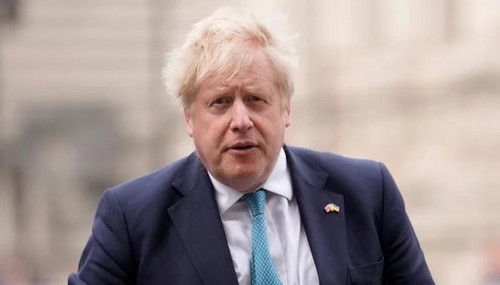The leadership vacuum in the UK comes at a time when the country is slowly sliding into an economic recession. And one of the producers of this recession is the war in Ukraine. Russia's aggression in Ukraine has led to an increase in fuel prices around the world. But in the UK this growth rate was unusual. As a result, only the increase in the price of fuel has created a kind of humanitarian crisis in the country.

Outgoing UK Prime Minister Boris Johnson is leaving behind a country rife with conflict and division. Who is coming to No. 10 Downing Street - it will be known today. Liz Truss, the frontrunner at the moment, or her rival Rishi Sunak, will sit in the prime minister's chair. The new prime minister will face the toughest political and economic test since 1970. The UK economy has seemingly been on a downward spiral since Johnson announced the likely date of his resignation. With this, the country's annual inflation is now over 10 percent due to the increase in food and fuel prices. The pound has been depreciating against the US dollar for over two years. As a result, the British pound is currently experiencing its worst period since the 2016 Brexit referendum. The rising cost of living has forced tens of thousands of frustrated port, train and mailroom workers to go on strike.
The Bank of England is raising interest rates at the fastest rate since 1990, raising the cost of borrowing in the country. Although the unemployment rate is low, many economists fear a recession; Which will last for at least one year or more and will start soon. These will surely influence the outlook of the new Prime Minister. Things may get worse before they get better. The Bank of England estimates that inflation will rise to 13 percent as the energy crisis intensifies. Citigroup estimates that the country's inflation could reach 18 percent by early 2023. On the other hand, Goldman Sachs has warned that inflation may reach 22 percent if the price of natural gas continues to rise.
Ben Zaranko, senior research economist at the Institute for Fiscal Studies, said: 'The key challenge to rising fuel prices is that Britain's households use energy, particularly poorer households. They really have to struggle to survive now.'
Comments